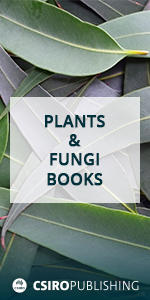Functional Plant Biology
Volume 50
Number 2 2023
Special Issue
Polyamines and Nitric Oxide Crosstalk in Plant Development and Abiotic Stress Tolerance
Guest Editors:
Durgesh Kumar Tripathi (Amity University Uttar Pradesh, India)
Javaid Akhter Bhat (Nanjing Agricultural University, PR China)
Parvaiz Ahmad (King Saud University, Saudi Arabia)
Suleyman I. Allakhverdiev (Russian Academy of Sciences, Russian Federation)
Polyamines (PAs) and nitric oxide (NO) are crucial signalling molecules that exhibit a promising role in improving stress tolerance in plants. They act as protecting agents for plants through activation of stress adaptation strategies such as membrane stabilisation, acid neutralisation and suppression of ROS generation. The authors affirm the potential of PAs and NO to act as a shielding agent for plants during stress exposure and the decoding the underlying mechanisms can help in developing stress-resistant varieties with improved productivity.
Maize (Zea mays L.), a major multipurpose crop for food and energy, is susceptible to environmental alterations. As a part of survival strategy, maize responds to different environmental stresses by changing its physiology and biochemistry equations in the cell. Polyamine metabolism is one such ways by which maize overcomes various environmental stresses.
Nitric oxide is regarded as novel chemical to beat the daunting challenges of postharvest losses in cut flowers. Flower quality and vase life are crucial postharvest attributes key to marketability and customer satisfaction of cut flowers. Our study explicates the efficacy of nitric oxide in mitigating postharvest senescence in Consolida ajacis ( L.) Schur cut spikes.
Anthropogenic activities have contributed an exponential rise in arsenic content in environment. The present paper deals with arsenic (AsV) incited stress in chickpea (Cicer arietinum L.) plants and its alleviation through the application of nitric oxide and spermidine (SPD). We hypothesise that synergistic impact of sodium nitroprusside (SNP) and SPD may improve physiological and biochemical processes of chickpea to enhance its tolerance against arsenic toxicity.
Chromium (Cr) is a major constraint effecting the growth, yield and quality of rice (Oryza sativa L.). Priming with nitric oxide (NO) and Spermine (Spm) alleviates the negative effects of the Cr on the rice growth and development. Hence, the exogenous supply of NO and Spm possess great potential for the stress tolerance, and can be effectively used to prevent losses in crop plants under heavy metal stress.
Polyamines (PAs) are multi-functional, low-molecular-mass polycationic aliphatic nitrogenous chemicals that play a key role in a variety of biological processes that occur during plant growth like embryogenesis, organogenesis, senescence, flower development, fruit maturation and response to a variety of stresses. This work examines the efficacy of polyamines (PAs) in modulating several biochemical and physiological aspects with an ultimate aim to delay leaf senescence in leaf discs of Berginia ciliata(Haw.) sternb.
Recently, Industrialisation and modern approaches have increased the level of arsenic in our environment. Higher concentration of arsenic has reduced growth of plants. This paper focuses on the role of nanoparticles in reduction of toxic effects of heavy metals. Results clearly state that nanoparticles can be used in combination with potassium silicate to enhance crop production.
The HAK (High-affinity K+) family members mediate K+ transport that confers normal plant growth and resistance against unfavourable environmental conditions. The phylogenetic, structural, functional characterisations of 27 rice (Oryza sativa L.) HAK transporters were performed and the effect of exogenous spermidine on five OsHAK genes under salt stress was studied. All these studies will pave the way to scrutinise the specific role of oshak transporter genes in improving crop resistance towards environmental stress conditions.
Enhancing crop productivity under the prevalent stressful environment is needed to meet global food demand. Copper (Cu) and copper oxide nanoparticles (CuONPs) pose adverse effects on Sorghum vulgare Pers. productivity. This study delineates that exogenous nitric oxide can mitigate their toxicity and improve the plant growth parameters. The findings of this research can be employed in developing new resistant varieties of sorghum having enhanced tolerance against Cu or CuONPs stress.






